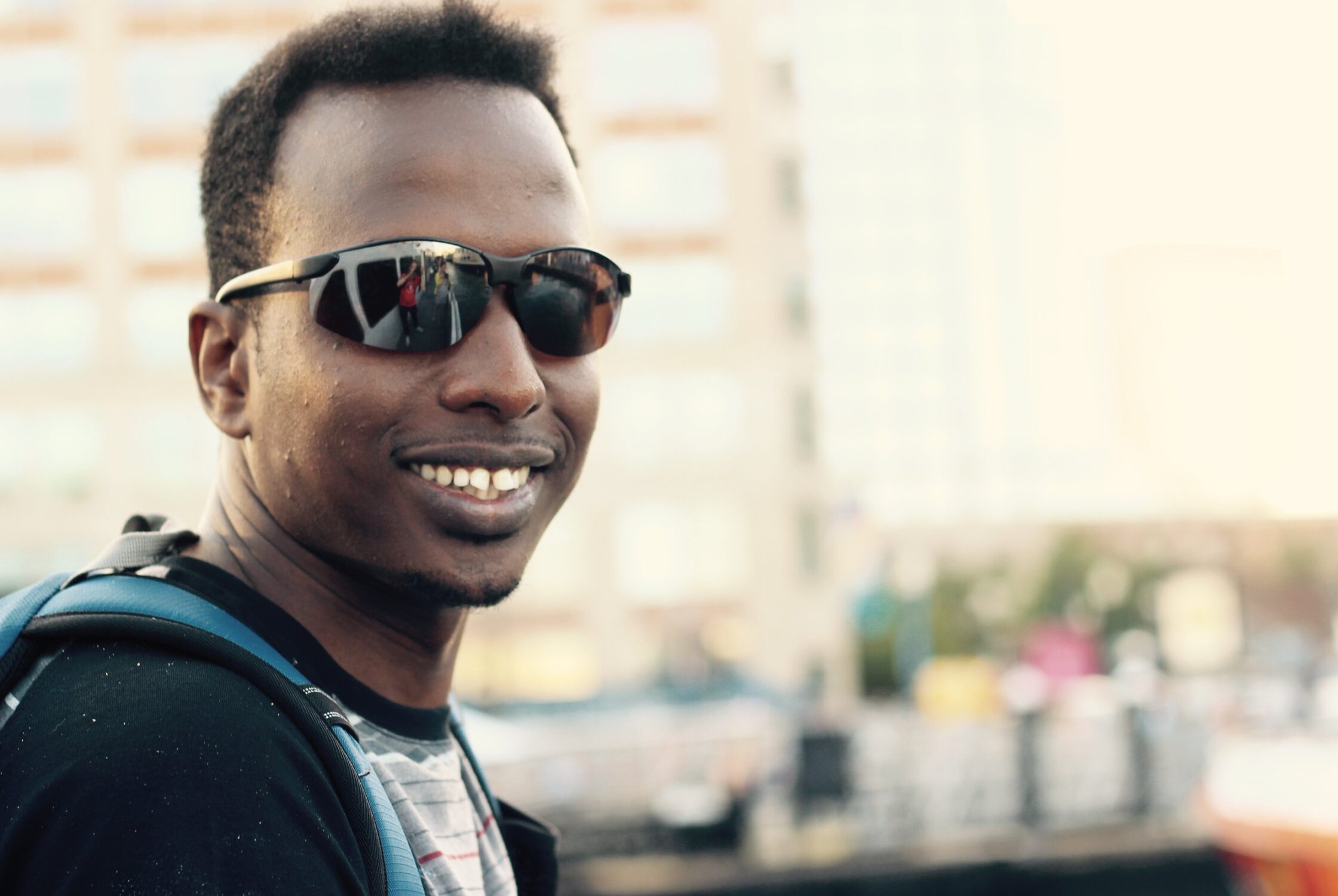Meet Abdi Iftin, a Somali Author and Former Refugee Who Now Calls Maine Home

For World Refugee Day this year, we are launching a campaign, #FaceTowardsHope, to feature the stories of refugees—their strength, their resilience, and their hopes for the future.
Abdi Iftin does not remember one day of his 29 years that he felt safe. Every tomorrow could have been his last. In Somalia, survival was the goal even if it meant walking days and nights to get far away from the gunshots. Yet, he had a dream of living in a world free of wars and brutality. And it was that dream that helped him escape the real-life bloody chaos of his childhood on the streets of Mogadishu. When he arrived in In Kenya in 2011, he met many young men and women who were refugees but who had the same dream of living in freedom. But for many years, it remained a dream.
Survival was his instinct even in a peaceful country like Kenya. No one chooses to be a refugee, he said. “It is a status we are assigned, and everything else that follows is a daily reminder of not being a full participant on the opportunities of planet earth.”
“To all my friends who risked their lives in the Sahara, who crossed oceans and the ones who were imprisoned pursuing this dream,” he said, “they should be celebrated and cheered. In Kenya, as a refugee, I was handcuffed, threatened, and robbed. I slept with my jeans on every night knowing that every night could be the night when the police arrive and arrest me.”
And yet, he instinctively knew he needed to tell not only his story but the story many refugees must live. He risked his life escaping recruitment by the extremist militant group al Shabaab in Somalia and found his way to Kenya where he remained in the shadows as a refugee. He recorded audio diaries that were broadcast by BBC and NPR. “It could have caused me harm if the government found out,” he said. “But this is the story of every refugee: Resilience and determination.”
In 2013, while dodging police roundups in Nairobi, he was randomly selected to apply for a U.S. green card. “It was like winning the lottery,” he said. But the paperwork required was daunting, and the odds of actually receiving a green card were slim. By now, Abdi was well known around the world thanks to his audio diaries. “I became the most famous green card lottery winner in the world,” he said.
Then, in September that year, al Shabaab attacked the Westgate Mall in Nairobi, killing 67 people and wounding scores more. The crackdown on Somalis in Kenya’s capital intensified, and police raids emptied Abdi’s neighborhood of refugees, trucking them to a makeshift camp in a converted soccer stadium. He barely escaped being rounded up, and spent days holed up in his now almost-empty apartment building. He battled Kenyan government bureaucracy and hostility to get his paperwork in order to present at his visa interview the U.S. embassy. Al Shabaab continued to stage attacks in Kenya, prompting fresh waves of police roundups and harassment of Somalis. “I miraculously escaped each one,” he said.
“For those of us who went through [war, oppression, and violence], every day of freedom is both a gift and a reminder of the dangers facing those who have fled their homes.”
Finally, in the fall of 2014, he received his visa to the United States. Friends bought him a ticket to Boston. His life and journey would become “Call Me American,” his memoir published on World Refugee Day in 2018.
Now, a year later, he hopes his story will help the public realize that there are more people escaping war, oppression, and violence than ever. “For those of us who went through that, every day of freedom is both a gift and a reminder of the dangers facing those who have fled their homes,” he said. “Groups such as al Shabaab are benefiting from the rejection of the refugees, closures of borders, and negative rhetoric from world leaders.”
It’s hard not to take the growing hostility to refugees personally, he said. And he worries that people who are simply looking for a safe place to sleep and the freedom to live their lives will someday find no safe harbor.
“If countries like the U.S. settled by immigrants could close its doors to the most desperate people in the world, who would help?,” he asked. “What countries will the world’s children of war look to?”
Please consider supporting our work so we can continue to advocate on behalf of former refugees like Abdi.